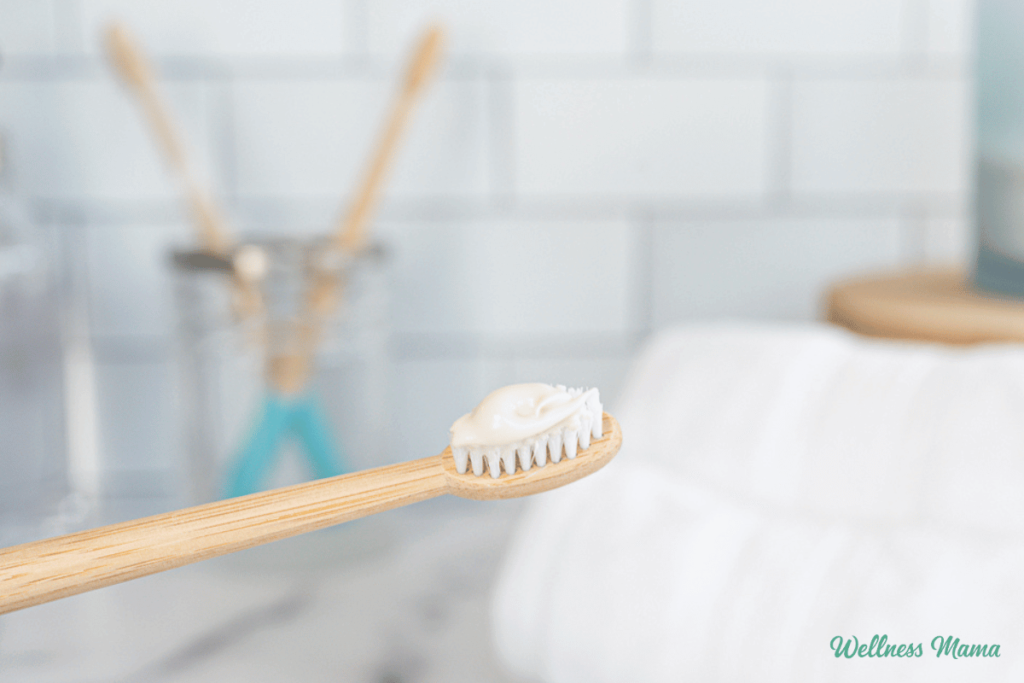Have you ever rushed through the morning getting ready to go somewhere only to discover you can’t find the car keys? Our ability to remember, recall, and learn new information is important for daily life. Unfortunately, we may start noticing little changes as we get older. But thankfully there are plenty of ways to keep our memory sharp as we age!
Some people maintain a sharp memory and quick wit well into their 90s. This article covers ways to naturally improve your memory and brain health at any age.
What Causes Memory Decline?
Neurological and cognitive health simply indicate overall wellness. While often associated with older adults, memory problems can affect people of all ages.
Jim Kwik is a well-known memory and brain performance coach I’ve interviewed on my podcast. His story begins with a childhood head injury that caused issues with his ability to focus, learn, and retain information. That experience inspired him to learn everything he could about improving his brain.
A head injury is one thing that can lead to cognitive decline, but it’s not the only cause. Other potential factors include:
- Brain infections
- Tumors
- Strokes
- Toxins
- Oxygen deprivation
- Nutrient deficiencies
- Certain medications
- Gut dysbiosis
- Sleep quality
- Stress and trauma
Anything that creates inflammation in the gut can create inflammation in the brain. Chronic brain inflammation may lead to cognitive decline and memory loss.
Symptoms of Memory Decline
Memory decline can manifest in a variety of ways depending on the person. However, common symptoms include:
- Forgetfulness
- Difficulty learning new information
- Repetitive questions or statements
- Misplacing things
- Poor judgment
- Difficulty problem-solving
- Confusion about time or places
- Difficulty recognizing faces
- Social withdrawal
- Changes in mood or personality
- Trouble finding the right words
- Difficulty completing familiar tasks
Those with persistent or worsening memory issues should see a healthcare professional. The severity could be a red flag for conditions like mild cognitive impairment, Lyme disease, or Alzheimer’s. That said, healthy brain habits can help you avoid neurodegeneration.
Healthy Brain Habits
Adopting healthy brain habits can support cognitive well-being and long-term brain health. In fact, the memory area of the brain, the hippocampus, is known to regenerate. It can even grow new brain cells (neurons) into your 90s if given the right environment.
Here are some habits that may positively impact the brain over time:
Avoid Sugar and Processed Foods
Diets high in sugar and processed foods may harm cognitive function and particularly, memory. A high-sugar diet can actually shrink the brain. That’s particularly true of the hippocampus, the part of the brain responsible for short-term memory.
In a 2017 study, researchers wanted to find out how sugar might lead to dementia. They found that higher sugar intake was associated with a lower total brain volume in those with preclinical Alzheimer’s disease.
Sugar and processed foods are linked to chronic inflammation, insulin resistance, oxidative stress, and more. They can also lead to obesity, another risk factor for mild cognitive impairment (MCI).
Get Sufficient Sleep!
We know quality sleep is essential for cognitive function and memory consolidation. Aim for 7-9 hours of quality sleep each night. If you don’t get enough sleep, you could be causing your memory to weaken over time. As an active mom, I aim for at least 9 hours every night.
Consider Medication Side Effects
Certain medications can also lead to memory loss. For example, anticholinergic drugs (used for overactive bladder and Parkinson’s disease), seizure drugs, and certain sedatives are all associated with memory problems. However, the memory may improve when the patient discontinues the medication.
Be Proactive in Stress Management
Chronic stress can lead to chronically high blood pressure, which is linked to brain issues. Taking some time to chill out with things like meditation, deep breathing, or yoga can be really helpful. Try something fun you enjoy, like watercolor painting or another creative outlet.
Get Regular Exercise
Getting physical activity most days of the week is crucial for a healthy brain. Aerobic exercise increases blood flow to the brain and increases the size of the hippocampus, improving memory. Activities like walking, running, swimming, or cycling may lower the risk of cognitive decline.
Seek Mental Stimulation
Never stop learning! Those who continue to challenge themselves have a lower risk of dementia. Even volunteering can help. Engage in activities that challenge your brain, such as puzzles, games, learning a new skill, or reading. When we stimulate our brain it helps with neuroplasticity or “rewiring” in the brain.
Use Memory Techniques
There are also some techniques you can use to improve your memory. Here are a few tips and tricks:
- Chunking – Chunking is a common memorization technique. It involves breaking down information into smaller, manageable parts or “chunks.” It’s especially used for phone numbers and to-do lists. You may even have your credit card number memorized due to this technique!
- Mnemonic devices – Mnemonic devices are memory techniques that can help us remember information. They often involve associating information with a pattern, image, or acronym. Most of us used these in school. Remember ROY G. BIV for the colors of the rainbow?
- Crossword puzzles – Crossword puzzles challenge your working memory, the system responsible for temporarily holding and manipulating information. Strengthening your working memory can have positive effects on your overall cognitive abilities.
- Don’t Give in To AI! – If you’re using GPS every time you drive, you’re doing your memory a disservice. A 2013 study found that using GPS or similar apps for navigation shrinks your hippocampus! A shrinking hippocampus is associated with declining memory function.
Be Social
We need friends and connections. Loneliness is associated with an increased risk of dementia, including Alzheimer’s disease. On the other hand, regular social engagement is associated with better cognitive function. It also improves mental health. Maintain relationships with family and friends to support your emotional well-being.
Limit Alcohol
Too much alcohol can have detrimental effects on the brain. In fact, it can even change brain structure, leading to cognitive decline. Overindulging increases the risk of all kinds of dementia. Make sure to limit alcohol consumption to no more than one drink a day for women and no more than two drinks a day for men.
Remember, adopting these habits can significantly impact your overall brain health.
Foods to Support a Sharp Memory
Food is medicine! Inflammation in the gut leads to inflammation in the brain. So, eat with your microbiome in mind. Here are some foods scientifically shown to support a sharp memory throughout life:
Fatty Fish
Fish like salmon, trout, and sardines are rich in omega-3 fatty acids, particularly DHA, which is crucial for brain health and memory. A 2023 review study found that omega-3s slowed cognitive decline.
Researchers encouraged those with early memory issues to eat more omega-3-rich fish or supplement with omega-3s. My favorites are salmon and sardines!
Eggs
Packed with several nutrients, including vitamins B6 and B12, folate, and choline, eggs support brain health and memory. A 2023 Japanese trial studied the effects of choline from egg yolks on cognition in older adults.
At the end of the study, those in the choline group had improved verbal memory. Researchers concluded that 300 mg of egg yolk choline daily was helpful for memory. If you have an allergy to chicken eggs, try duck eggs.
Blueberries
Packed with antioxidants, blueberries can help improve communication between brain cells and memory. A 2011 study found that wild blueberry juice improved memory in older adults. After 12 weeks of drinking blueberry juice, those with age-related memory decline did better with recall testing. They even had a better mood!
Lion’s Mane Mushroom
Lion’s mane mushroom is an edible and medicinal mushroom studied for its potential cognitive benefits. It’s especially known for supporting memory and brain function.
A 2009 study found those with mild cognitive impairment improved with lion’s mane. It took 4 weeks to notice a difference.
Green Tea
Trading some of your coffee for green tea may help preserve memory over time. The synergistic effect of caffeine and L-theanine in green tea may enhance brain function and improve alertness.
A review of 21 studies found green tea improved cognition and brain function. The research showed green tea had benefits for memory and attention. It also improved working memory, which showed up on MRI films.
Nuts
Tree nuts like walnuts, almonds, and hazelnuts are rich in nutrients beneficial for brain health. Some of these include omega-3 fatty acids, antioxidants, and vitamin E. A whole walnut even looks much like the brain!
Tree nuts may protect the memory in several ways. They provide important nutrients, but they also lower inflammation and support the growth of new brain cells.
Dark Chocolate
If you need an excuse to eat chocolate, here it is! Dark chocolate has flavonoids, caffeine, and antioxidants, which may improve memory, focus, and mood. It turns out that dark chocolate increases nerve growth factor (NGF) in the brain. As a result, it may support cognitive performance, including memory.
Of course, no single food can miraculously boost memory. Including these foods within the context of a healthy diet and lifestyle makes a massive difference.
Supplements to Improve Memory
Supplements can also help supply nutrients our brains need. Natural Stacks is one of the supplements I use and they have nootropics and other supplements that support a sharper memory. Here are a few more ideas:
Fish Oil
As mentioned, omega-3 fatty acids, particularly EPA and DHA, are essential for brain health. They play a crucial role in the structure and function of the brain. Supplementing with a high-quality fish oil may help.
Bacopa Monnieri
An herb used in traditional Ayurvedic medicine, Bacopa monnieri has been studied for its brain-boosting effects, including memory improvement. The research shows benefits for cognitive performance, including word recall and the ability to create new memories. I love Four Sigmatic’s mushroom-powered drinks and their Focus Mushroom Blend features memory-boosting herbs, including bacopa.
Ginkgo Biloba
Ginkgo Biloba herb has a long history of use when it comes to improving memory. Studies show it can improve blood flow to the brain and has antioxidant properties. Other research suggests it may have memory-enhancing effects. It’s also been used for decades to help those with dementia.
Curcumin (Turmeric)
Curcumin, the active ingredient in turmeric, has been linked to improved memory and overall brain health. These benefits are likely due to its anti-inflammatory and antioxidant effects. Some research suggests it may have cognitive benefits, including memory improvement.
A 2018 clinical trial used 90 mg of curcumin twice daily in healthy adults. After 18 months, the participants had improved their memories. Researchers believe it might be due to curcumin’s ability to reduce brain inflammation. Some turmeric powders have lead mixed in, but I get this high-quality turmeric here.
Resveratrol
Found in red wine, grapes, and some berries, resveratrol is an antioxidant studied for its potential for memory enhancement. A 2017 clinical trial studied 119 patients for a year and found resveratrol decreased brain inflammation. It also activated certain proteins that help prevent brain degeneration.
Vitamin B12
Vitamin B12 deficiencies are linked with cognitive decline, including Alzheimer’s Disease. It’s important to get enough vitamin B12 for overall brain health. Clams, liver, fish, and beef are some of the top food sources.
Final Thoughts on How to Improve Memory
Memory decline isn’t inevitable as you age. However, it’s best to adopt good brain habits early on. Whatever your age, start now. Eat a brain-healthy, anti-inflammatory diet with plenty of healthy fats. Stay active, both physically and cognitively. Stay connected and try new things.
A sharp mind is like anything else; use it or lose it. Be a lifelong learner who isn’t afraid to try new things – You’ll have a richer life as a result!
How’s your memory? Do you do specific things to keep your memory sharp or take nootropics? Share with us below!








